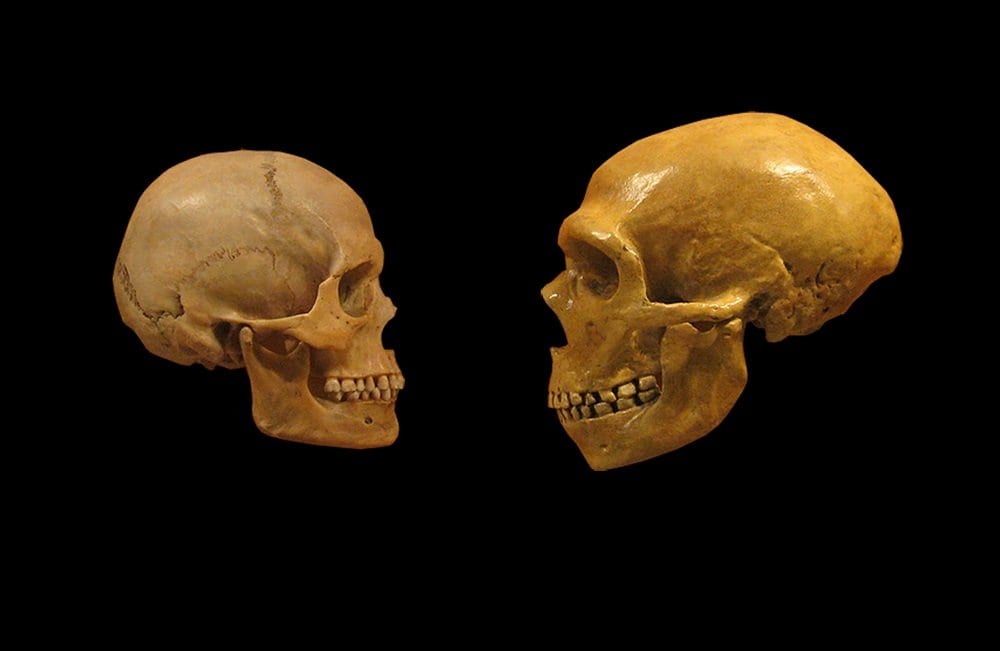Schizophrenia poses an evolutionary enigma. The disorder has existed throughout recorded human history and persists despite its severe effects on thought and behavior, and its reduced rates of producing offspring.
A new study in Biological Psychiatry may help explain why-comparing genetic information of Neanderthals to modern humans, the researchers found evidence for an association between genetic risk for schizophrenia and markers of human evolution.
“This study suggests that schizophrenia is a modern development, one that emerged after humans diverged from Neanderthals,” said John Krystal, Editor of Biological Psychiatry. “It suggests that early hominids did not have this disorder.”
The cause of schizophrenia remains unknown, but researchers know that genetics play a significant role in the development. According to senior author Ole Andreassen from the University of Oslo in Norway and University of California, San Diego, some think that schizophrenia could be a “side effect” of advantageous gene variants related to the acquisition of human traits, like language and complex cognitive skills, that might have increased our propensity to developing psychoses.
Along with Andreassen, first authors Saurabh Srinivasan and Francesco Bettella, both from the University of Oslo, and colleagues looked to the genome of Neanderthals, the closest relative of early humans, to pinpoint specific regions of the genome that could provide insight on the origin of schizophrenia in evolutionary history.
They analyzed genetic data from recent genome-wide association studies of people with schizophrenia for overlap with Neanderthal genomic information. The analysis tells researchers the likelihood that specific regions of the genome underwent positive selection sometime after the divergence of humans and Neanderthals.
Regions of the human genome associated with schizophrenia, known as risk loci, were more likely to be found in regions that diverge from the Neanderthal genome. An additional analysis to pinpoint loci associated with evolutionary markers suggests that several gene variants that have undergone positive selection are related to cognitive processes. Other such gene loci are known to be associated with schizophrenia and have previously been considered for a causal role in the disorder.
“Our findings suggest that schizophrenia vulnerability rose after the divergence of modern humans from Neanderthals,” said Andreassen, “and thus support the hypothesis that schizophrenia is a by-product of the complex evolution of the human brain.”






